 Petzlover
Petzlover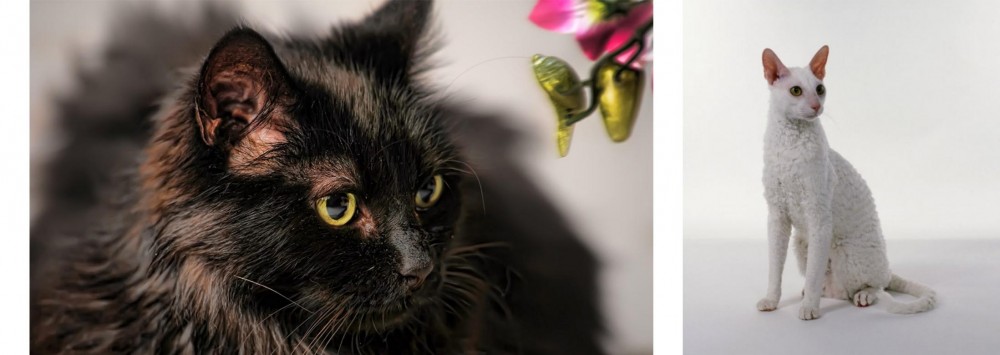 Chantilly/Tiffany is originated from United States but Cornish Rex is originated from United Kingdom. Both Chantilly/Tiffany and Cornish Rex are having almost same weight. Chantilly/Tiffany may live 4 years less than Cornish Rex. Both Chantilly/Tiffany and Cornish Rex has same litter size. Both Chantilly/Tiffany and Cornish Rex requires Low Maintenance.
Chantilly/Tiffany is originated from United States but Cornish Rex is originated from United Kingdom. Both Chantilly/Tiffany and Cornish Rex are having almost same weight. Chantilly/Tiffany may live 4 years less than Cornish Rex. Both Chantilly/Tiffany and Cornish Rex has same litter size. Both Chantilly/Tiffany and Cornish Rex requires Low Maintenance.
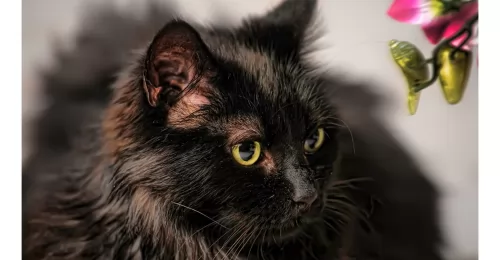 The beautiful Chantilly/Tiffany cat gets people thinking the cat is a semi-longhaired Burmese, but of course, it's not.
The beautiful Chantilly/Tiffany cat gets people thinking the cat is a semi-longhaired Burmese, but of course, it's not.
The way the Chantilly came about was that there were a pair of chocolate-colored cats but their origins were unknown. The first litter of Chantilly kittens was born in New York in 1969 and people were so taken up by the beautiful kittens that a breeding program was started.
The cat was first started as a foreign longhair and then it changed to Tiffany. In a British registry, a cat breed that was a cross between a Chinchilla Persian and a Burmese was named the Tiffanie and renamed Chantilly and referred to as the Chantilly/Tiffany.
The breed is recognized by most major cat registries.
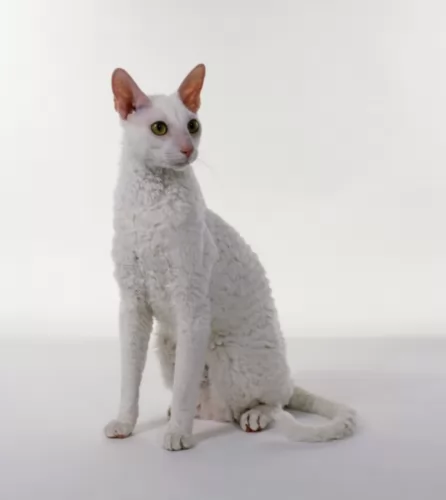 Cornwall is the birthplace of the unusual Cornish Rex cat – a curly-coated cat.
Cornwall is the birthplace of the unusual Cornish Rex cat – a curly-coated cat.
A kitten was born in 1950 and belonged to Nina Ennismore and Winifred Macalister. The other kittens had short hair but this unusual kitten had curly hair, the result of a spontaneous natural mutation.
A successful breeding program was started and it was in 1963 that the American Cat Fanciers Association as well as the and today it is recognized by all cat registries.
 The cat has a fairly broad head with widely spaced ears of medium size. The eyes are oval-shaped and gold in color. The fur is semi-long and there is no undercoat. The tail is plumed.
The cat has a fairly broad head with widely spaced ears of medium size. The eyes are oval-shaped and gold in color. The fur is semi-long and there is no undercoat. The tail is plumed.
Apart from the original chocolate brown of the cat, other colors of the coat can include fawn, cinnamon, black, lilac and blue, with the chocolate brown being the favorite color.
The Chantilly promises to be a devoted and loyal feline companion for you, much preferring the company of his human family than to being alone.
It gets on well with other pets in the house as well as with respectful, gentle children. He isn't a demanding cat and he tries to talk with his family by chirping. It’s a balanced cat, with a fair share of docility and energy, making the cat an ideal companion for single people, couples, families, and elderly people.
It’s a cat that is so devoted, it will follow his human family around the house.
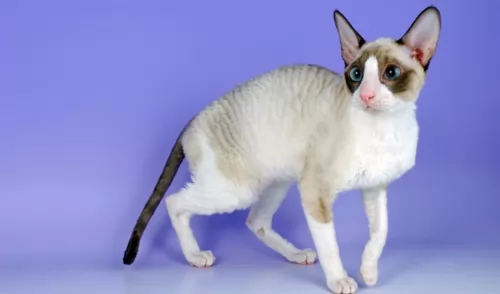 The Cornish Rex is a small to medium-sized cat weighing between 3 to 5kg. It’s a lithe, slender cat with a small, narrow head with big ears and eyes.
The Cornish Rex is a small to medium-sized cat weighing between 3 to 5kg. It’s a lithe, slender cat with a small, narrow head with big ears and eyes.
The cat has long, slender legs with a tail that is also slender and long. The hair is very fine and they are actually prone to hair loss. The coat has fine, short, silky hair. There can be a bit of a curl in the hair, The coat comes in many colors from white, silver, black, red, blue to chocolate and they can have different patterns too as well as bein bi-color.
The eyes can be gold, brown, or green. The torso is long and lean, the cat has a deep chest but strong hips and rear end that allow the Cornish Rex to leap with ease up onto perches.
The Cornish Rex loves his human family and loves spending time with them, whether that means fun and games or sitting in your lap.
He is intelligent and can learn a few tricks and is capable of learning to walk on a leash. He is a confident cat, playful and entertaining. Gentle and loving, he is a talkative cat, wanting to express his opinion about everything.
He will fit easily into different lifestyles, whether you’re single, a family, or in a retirement home, so long as he is receiving lots of attention.
He isn’t as frail as he looks and can get pretty active and social with children and dogs and may even beat the dog to fetching a small ball.
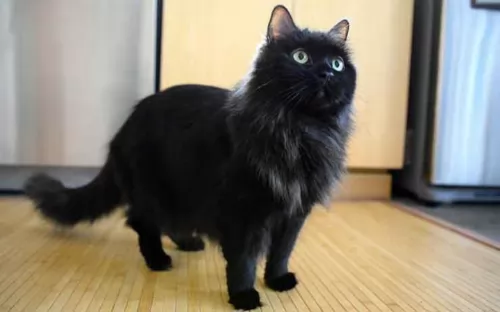 The Chantilly/Tiffany is a gentle and kind breed that is playful and easy-going. They are just your typical middle-of-the-road cats that are not too much or too little of anything.
The Chantilly/Tiffany is a gentle and kind breed that is playful and easy-going. They are just your typical middle-of-the-road cats that are not too much or too little of anything.
The Tiffany is playful, docile, happy and content and he wants to be your friend and companion.
If you are looking for a breed of cat that is loyal to its human family, allow this cat into your home... you won't have any regrets.
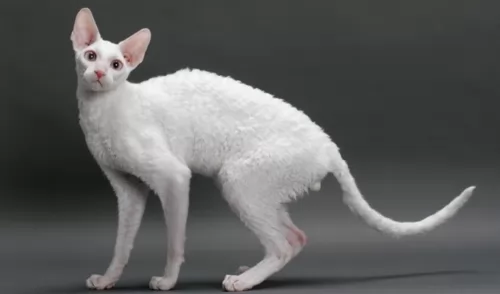 If you’re looking for a cat that can bring laughter and fun into the household, you won’t go wrong with a Cornish Rex as they will amuse and delight.
If you’re looking for a cat that can bring laughter and fun into the household, you won’t go wrong with a Cornish Rex as they will amuse and delight.
He is also a cat that doesn’t require a lot of fuss and bother, although he makes a fuss about the amount of attention he gets.
He doesn’t like being left alone for long, so a good idea is to work from home or to get a companion for him. Other than than, he makes the most splendid feline companion.
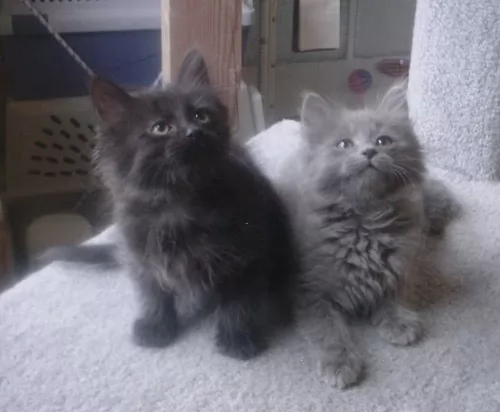 There is no health issue that the Tiffany is prone to. Like any cat, a healthy diet will keep the Tiffany healthy for years.
There is no health issue that the Tiffany is prone to. Like any cat, a healthy diet will keep the Tiffany healthy for years.
These cats are known to have delicate digestive systems so avoid foods with grain if possible. The Tiffany has full hair in their ears, and wax build-up can occur so the inside of his ears must be checked. Checking the ears once a week, as part of a regular routine that includes brushing, and tooth care, should be sufficient to keep the ear canals clear.
Other issues, which are not detrimental but should be kept in mind, are reports that the Tiffany has delicate digestion. This cat relies on a regular diet that doesn't chop and change often.
Because the Tiffany is a low-shedding cat, it is thought to be a popular breed with those people who are allergic to cat hair.
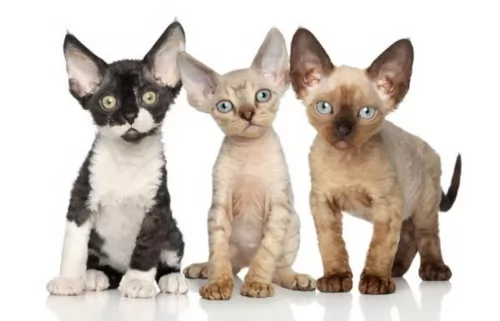 The Cornish Rex is a hardy cat with very few health issues. Certainly, because of the very fine hair, you’d have to be aware of sunburn.
The Cornish Rex is a hardy cat with very few health issues. Certainly, because of the very fine hair, you’d have to be aware of sunburn.
Cats can get sunburned and can be at serious risk of getting skin cancer later on. Be sun-smart and apply pet sunscreen.
Be careful of the type of sunscreen you use as your cat will likely want to lick it off. Other issues to look out for are hypertrophic cardiomyopathy. This is a common kind of heart disease in cats where there is a thickening in the wall of the heart.
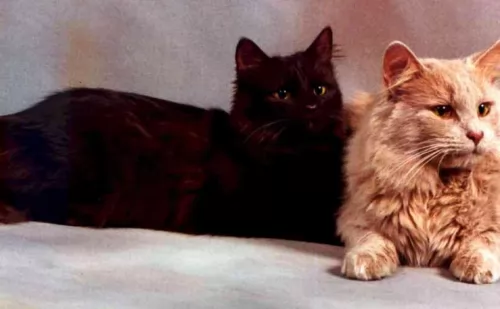 The Chantilly needs an excellet diet and exercise to ensure he doesn’t become to overweght. Remember that cats are carnivores, and this means they have nutritional requirements that can only be met with meat – they can never do well on a diet high in carbohydrates and will develop digestive problems. Your cat will also require clean, fresh water aroud thd clock to ensure his good health.
The Chantilly needs an excellet diet and exercise to ensure he doesn’t become to overweght. Remember that cats are carnivores, and this means they have nutritional requirements that can only be met with meat – they can never do well on a diet high in carbohydrates and will develop digestive problems. Your cat will also require clean, fresh water aroud thd clock to ensure his good health.
Ensure each cat you have has a litter box andencourae good litter box habits by cleaning th litter box every day. Keeping the litter box clean also alerts you anything unusual with your cat’s toilet habits.
Provide your cat with a scratching post and a climbing tree.
The cat doesn’t have an undercoat and is therefore easy to groom. With his semi-long hair, you can brush him once a week to keep the coat soft and shiny. The coat is also low shedding.
Check inside his ears and inside his mouth to ensure there is no redness and signs of infection.
Schedule regular vet visits for your cat for his cat vaccines and for when he is sick.
Spay or neuter your cat to prevent unwanted kittens. Spaying and neutering prevents uterine infections and certain cancers in the felines.
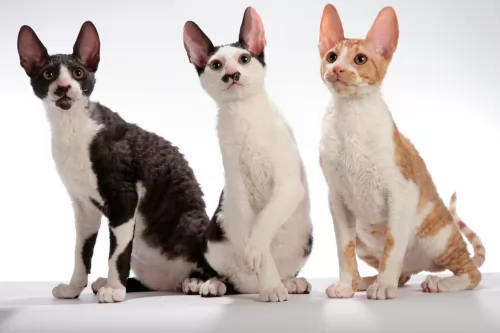 Grooming your Cornish Rex isn’t going to be an issue as the cat has very little hair. Although nothing is set in stone and some Cornish Rex’s have thicker coats, requiring more brushing. Maybe a soft brush once a week will be sufficient for this cat breed.
Grooming your Cornish Rex isn’t going to be an issue as the cat has very little hair. Although nothing is set in stone and some Cornish Rex’s have thicker coats, requiring more brushing. Maybe a soft brush once a week will be sufficient for this cat breed.
A good idea is to take a cloth of warm water and to gently wipe your cat so that he is free of dust.
Supply a litter box and make sure that you remove his droppings every single day.
Have your pet neutered or spayed if you don’t want unwanted kittens. These minor ops have many health benefits for your cat as well.
When you brush your cat, check his entire body out for any abnormalities. Check for new lumps, check inside the ears to make sure they are clean and free of redness which could indicate an infection.
Clip his toenails, make sure his eyes are clear and bright, free of discharge, and check inside his mouth to make sure there aren’t any bad teeth, as this could cause him a lot of discomfort.